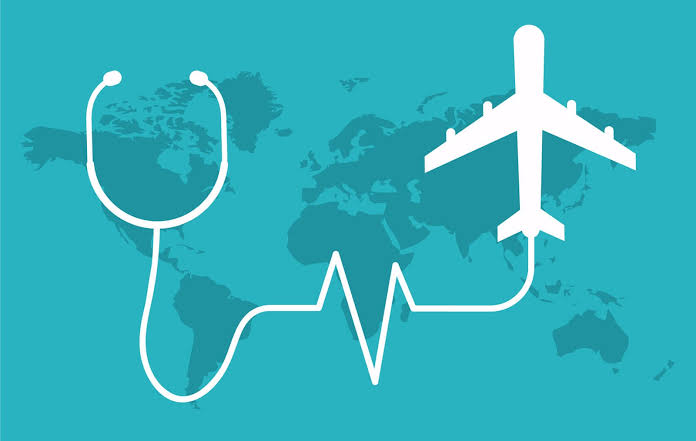Nigeria Spends Over $2.39 Billion on Medical Tourism in 2024, Says Onyishi


Nigeria spent more than $2.39 billion on medical tourism in 2024, revealed Dr. Samuel Maduka Onyishi, Founder and Chancellor of Maduka University. He made the disclosure during his keynote speech at the second Academic Lecture of the Faculty of Health Sciences and Technology at the University of Nigeria, Enugu Campus. His lecture was titled “Entrepreneurship for Human Development and Economic Progress: A Call on Nigerian Universities.”
Dr. Onyishi emphasized that Nigeria’s expenditure extends beyond medical tourism, highlighting significant imports of medical supplies and consumables. These figures underscore the pressing need to develop a robust medical entrepreneurship sector within the country.
He lamented that despite Nigeria’s extensive network of over 48 universities offering programs in medicine, surgery, nursing, and allied health sciences, as well as more than 400 nursing schools and specialized training institutions, the nation has yet to fully harness the potential of medical entrepreneurship.
According to Onyishi, strategic entrepreneurship education is essential for tackling unemployment and poverty. He urged Nigerian universities to move beyond theoretical teaching and adopt a more practical, entrepreneurial approach to education.
He proposed a comprehensive model of “targeted entrepreneurial education,” which encompasses entrepreneurship training, financial literacy, vocational skills, leadership development, ICT literacy, legal education, life skills, business intelligence, family planning, cooperative formation, and healthy living.
Onyishi also stressed the importance of fostering student-led initiatives such as cooperative societies, investment clubs, and industry partnerships, suggesting that holiday internships greatly benefit student development.
To promote economic self-sufficiency, he called for the establishment of incubation centers, school farms, and agricultural training programs to boost food security and local production.
Addressing the evolving job landscape, Onyishi warned that artificial intelligence is already displacing workers, emphasizing that universities must align their curricula with emerging technological trends to produce relevant graduates in an AI-driven world.
He identified key elements necessary to unlock potential in medical entrepreneurship: professionals with integrity, long-term investors, diverse equity models—including sweat equity and consultancy royalties—and strong corporate governance.
Challenging academic and industry professionals, Onyishi observed that Nigeria’s numerous universities and growing professoriate have yet to significantly impact national development. He called for a reimagining of higher education, advocating for an entrepreneurial university model that integrates local initiatives, especially within the medical and health sectors, to catalyze Nigeria’s progress.


